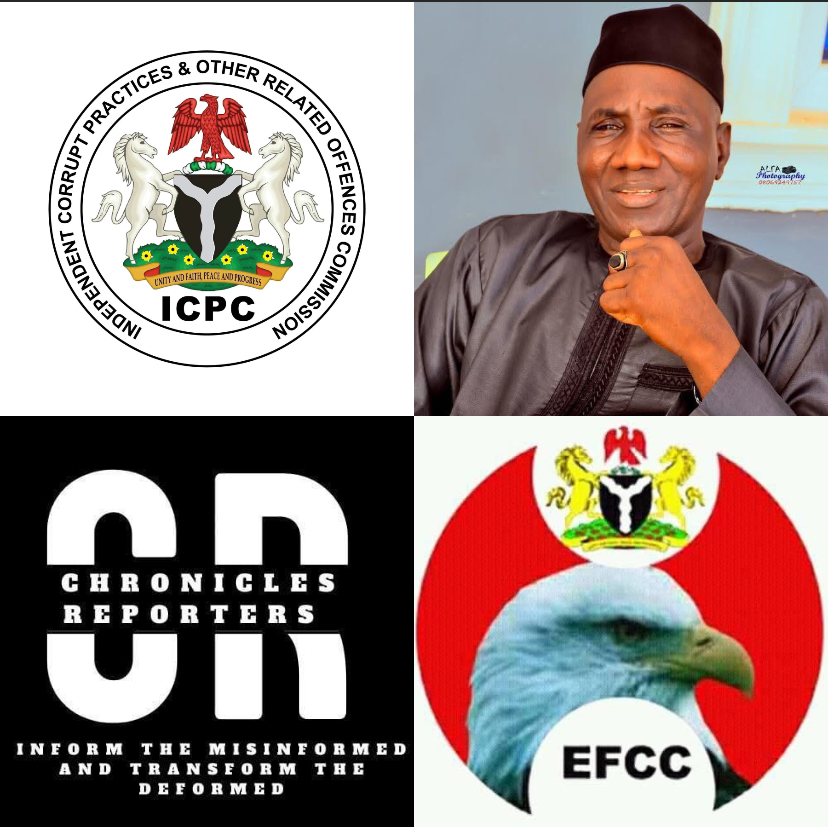
A fresh wave of accountability is blowing through Gwagwalada Area Council as human rights lawyer and transparency advocate, Barrister Yinka Oyesomi, has vowed to formally petition the Economic and Financial Crimes Commission (EFCC) and the Independent Corrupt Practices and Other Related Offences Commission (ICPC) over what he described as “deliberate concealment of public financial records” by the Gwagwalada Area Council authorities.
This development comes after the Area Council Chairman, in a written response to a Freedom of Information (FOI) request filed by civic groups and journalists, admitted that the allocation and expenditure documents for the council are “in their possession.” The admission, however, came without the release of the requested documents — a move that Oyesomi says “violates the spirit and letter of the FOI Act.”
“The chairman’s response is both an admission and an act of defiance,” Oyesomi told Chronicles Reporters in Abuja.
“You cannot tell citizens that the documents are with you and still refuse to make them public. That is a direct obstruction of transparency and a breach of public trust.”
Oyesomi, who has championed several legal campaigns on governance and fiscal responsibility within the FCT, said he would give the council a few days’ grace period before proceeding with petitions to both anti-graft agencies.
“We will be writing to the EFCC and ICPC to demand an immediate forensic investigation into how Gwagwalada Area Council has been utilizing its federal allocations, grants, and internally generated revenues over the last three years,” he stated.
“The FOI response confirms that they have the records. What we need now is accountability.”
In early October, Chronicles Reporters, in collaboration with civic advocates, submitted an FOI request to the Gwagwalada Area Council requesting detailed monthly allocation records, budget performance reports, and expenditure breakdowns for the 2022–2024 fiscal years.
The request was part of an ongoing community transparency initiative aimed at exposing gaps in governance and ensuring that citizens understand how public funds are managed at the local level.
However, instead of providing the requested documents, the council’s legal department merely acknowledged their existence — a move that has now sparked public outrage and renewed calls for openness.
Residents and youth leaders across Gwagwalada have begun expressing frustration over what they describe as “years of financial opacity” in the administration of local funds. Many are calling for a public audit and publication of all financial inflows to the council.
A member of the Gwagwalada Youth Accountability Forum told Chronicles Reporters:
“Every month, allocations come in from the federal purse, but there’s no visible development to show for it. The schools, roads, and health centers are in poor condition. We deserve to know where the money goes.”
Barrister Oyesomi revealed that his legal team is finalizing documentation to accompany the petitions to the EFCC and ICPC, demanding both financial and administrative probes.
He also hinted at the possibility of filing a lawsuit under the Freedom of Information Act to compel the council to release the requested documents to the public.
“We are not relenting. Gwagwalada belongs to the people, not a few in power. If they won’t be transparent willingly, we will make it a matter of national accountability,” Oyesomi declared.
As part of its civic mission, Chronicles Reporters will continue to follow this story closely, publishing verified documents and updates as the investigation unfolds.
This renewed push for transparency could mark a defining moment in the quest for open governance and public accountability within Gwagwalada Area Council — a test of whether citizens’ right to know truly holds weight in Nigeria’s democracy.